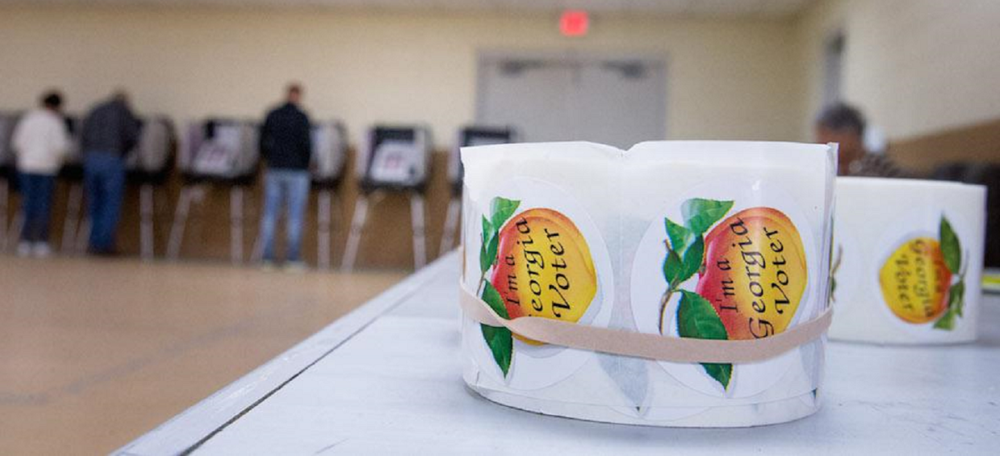
Caption
Voters say finding a candidate whose stances on abortion align with their own is a priority this election cycle.
Credit: GPB / File
LISTEN: Abortion unexpectedly became an issue in Georgia’s May election, driving people to the polls. GPB's Sarah Kallis reports.

Voters say finding a candidate whose stances on abortion align with their own is a priority this election cycle.
Abortion unexpectedly became an issue in Georgia’s May election.
John Barrow, a challenger to Georgia Supreme Court Justice Andrew Pinson, campaigned on an abortion-rights platform. While Barrow did not win, he received 45% of the vote in the statewide contest.
Meanwhile, grassroots movements in other states, such as Florida, have put abortion access on the ballot directly for voters to decide.
But in Georgia, there will be no citizen-led ballot referendum on abortion.
"We've seen across the country citizen led ballot initiatives or referendums," state Rep. Shea Roberts said. "And unfortunately, Georgia's constitution does not permit that."
While Georgia’s constitution does allow ballot initiatives approved by state legislators, voters cannot bypass the Legislature to put a referendum on the ballot.
Roberts filed a bill last session that would allow citizens to vote on a constitutional amendment which, if approved, would allow citizen-led ballot referendums. But the bill was not voted on in either chamber.
In Georgia’s Republican-controlled Legislature, a referendum on abortion access is unlikely.
"In Georgia right now, our only option is for us to elect pro-reproductive-freedom candidates, if we want to see change," Roberts said.
In responses to GPB’s voter survey, listeners have implied choosing candidates whose abortion stances align with their own is extremely important this year.
Chris Triebsch is one of those listeners. She is an attorney living in East Cobb County.
"If you know a woman, love a woman, know or love anybody, that, is reproducing, you would want to protect their rights," she said. "It's just it's it's critical. Bodily autonomy is critical, and it's important."
Triebsch said she is an active voter, and chooses abortion-rights candidates.
Triebsch is not alone. Layla Brooks, a Ph.D. candidate at Emory University researching gender and politics, said that when abortion becomes a campaign issue in the state, more women turn up to the polls.
"When women feel like they've been called upon in some way or it's their responsibility, or when women truly care about an issue, they're going to be more likely to turn out to vote and participate in politics," she said.
Brooks examined all 50 states in her research. She said that women, Democrats and Republicans alike, are more likely to participate in elections where abortion is salient, whether they favor abortion rights or are anti-abortion.
"When we have these women-related issues that pop up, this kind of changes people's perceptions of politics," Brooks said. "And it signals that the political environment is gender-inclusive."
In Georgia, the overall political environment is unlikely to change soon. Meanwhile, both President Joe Biden and former President Donald Trump are prioritizing abortion in their campaigns.
If you have not yet taken the GPB voter survey, please make your voice heard here.